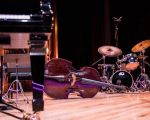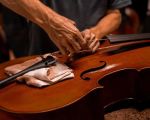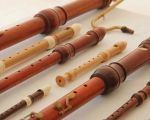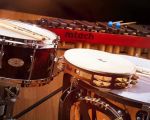How to Find a Good Used Piano for Sale
If you're looking for a piano but don't want to break the bank on a brand-new one, buying a used piano might be the perfect solution. As someone who has gone through the process of buying a used piano, I can tell you that it’s both exciting and a bit overwhelming. There’s a lot to consider when purchasing a second-hand piano—whether it's an upright or grand, an acoustic or digital—and you want to make sure that what you're getting is in good condition and suits your needs.
1. Understanding What to Look for in a Used Piano
The first step in finding a good used piano is understanding what to look for. A piano is a significant investment, even when buying second-hand, and you want to make sure you’re getting value for your money. When I started my search for a used piano, I had to educate myself on key aspects that determine whether the piano is worth the price or if I should walk away.
1.1 The Condition of the Piano
The most important factor is the condition of the piano. It doesn’t matter how beautiful or expensive a piano is if it’s out of tune, has broken keys, or shows visible damage. When I started looking for used pianos, I quickly learned that it’s essential to check the following:
- Keys: Ensure all the keys are functional and responsive. One of my first pianos had a couple of keys that were sticky, and it greatly affected my playing experience.
- Soundboard: The soundboard is a crucial component. Look for any cracks or signs of damage. A good soundboard ensures that the piano will produce a full and rich tone.
- Pedals: Check the pedals to ensure they are working correctly. The sustain pedal, in particular, should be responsive and smooth.
- Tuning: Ask how recently the piano was tuned. Older pianos may need a professional tuning and possible repairs, which can add to the cost.
1.2 The Brand and Age of the Piano
The brand and age of the piano also play a significant role in its quality and value. Some brands, like Steinway & Sons or Yamaha, are renowned for their craftsmanship and durability. I personally found that pianos from well-known manufacturers tend to hold their value longer and require fewer repairs over time. However, they also come at a higher price point.
Age is another critical factor. Pianos age differently depending on how well they’ve been cared for. A well-maintained piano that’s 20 years old might be in better condition than one that’s only 10 years old but hasn’t been cared for properly. When looking at used pianos, I always check the age and maintenance records, if available.
2. Where to Find a Good Used Piano for Sale
Once you know what to look for, the next step is finding the right place to shop for a used piano. Over the years, I’ve discovered several great places to find used pianos. Here’s where I recommend starting your search:
2.1 Online Marketplaces
One of the most convenient ways to find a used piano is through online marketplaces. Websites like Craigslist, Facebook Marketplace, and OfferUp often have listings for second-hand pianos at various price points. While you can find some great deals, be cautious about the condition of the piano. It’s always best to inspect it in person before making a purchase.
I once found a great deal on a used piano through Craigslist, but when I went to inspect it, I realized it had a lot of cosmetic damage. Always ask for photos of the piano from different angles and request detailed information about its condition. If possible, bring along a professional tuner or technician for advice before making your purchase.
2.2 Local Piano Dealers
Another excellent option is visiting a local piano dealer. Many dealers sell both new and used pianos, and they often have a selection of well-maintained second-hand pianos. What I liked about buying from a dealer is that they often offer warranties or guarantees on their used pianos, which gives you peace of mind.
Local piano dealers can also be a great resource for advice on which pianos are best suited to your needs. They can provide you with more detailed information about the history of the piano, its maintenance records, and its overall condition. Some dealers even offer delivery and tuning services, which can be a huge help.
2.3 Auctions and Estate Sales
Auctions and estate sales can also be great places to find a used piano. Many times, pianos are sold during estate sales due to downsizing or the passing of an owner. You can often find some vintage or rare pianos in good condition. I’ve attended a few auctions myself and found pianos that were sold at a fraction of their retail value.
However, auctions require a bit more knowledge and experience, as you’re bidding against others and may not have the luxury of inspecting the piano in-depth before committing. It’s important to know the value of the piano beforehand and set a budget for yourself.
3. How to Negotiate the Price of a Used Piano
Once you’ve found a used piano that you’re interested in, the next step is negotiating the price. Many sellers are open to negotiating, especially if the piano has been sitting unsold for a while or if there are minor imperfections. I’ve learned a few tricks over the years that have helped me get a better deal on a used piano:
3.1 Research the Market Value
Before you start negotiating, it’s important to do your research. Look up the market value of the piano model you’re considering. Websites like PianoBuyer and The Piano Technicians Guild provide useful pricing information. Knowing the fair market value will give you an idea of what a reasonable price is.
3.2 Point Out Any Defects
If you notice any imperfections or areas where the piano needs repairs, use that as leverage in your negotiation. Whether it’s a minor issue with the soundboard or a sticky key, pointing out these flaws can help you lower the price. I’ve had great success negotiating down the price by highlighting small repairs that would need to be made.
3.3 Be Prepared to Walk Away
Lastly, don’t be afraid to walk away if the price is too high. There are plenty of other pianos out there, and sometimes, the seller will lower their price if they see you’re not willing to pay more than you're comfortable with.
4. Getting the Piano Tuned and Inspected
Once you’ve made your purchase, it’s essential to have the piano tuned and inspected by a professional technician. I always recommend getting a full inspection to ensure that everything is working properly, especially if you’re buying a vintage or older piano. A technician will be able to tell you if there are any underlying issues, such as problems with the strings or the pedals, that could affect the sound quality and longevity of the instrument.
5. Ready to Find Your Perfect Used Piano?
Now that you know how to find a good used piano, it's time to start your search. Whether you’re buying online, visiting a local dealer, or exploring auctions, there’s a world of great second-hand pianos out there waiting for you. If you’re looking for the perfect piano for your home or studio, make sure to check out Beat Trigger for expert recommendations and a wide selection of used pianos available for purchase.








